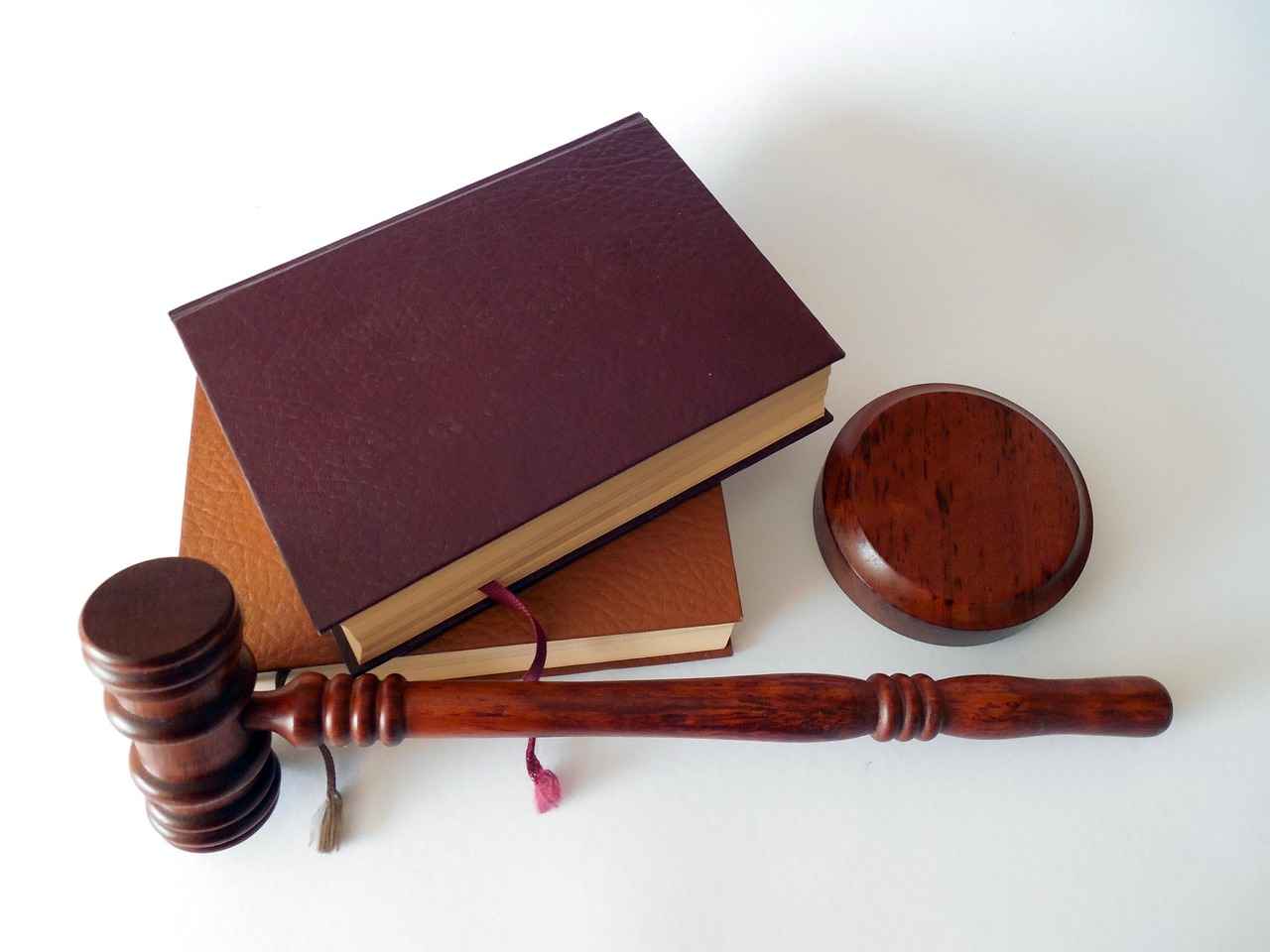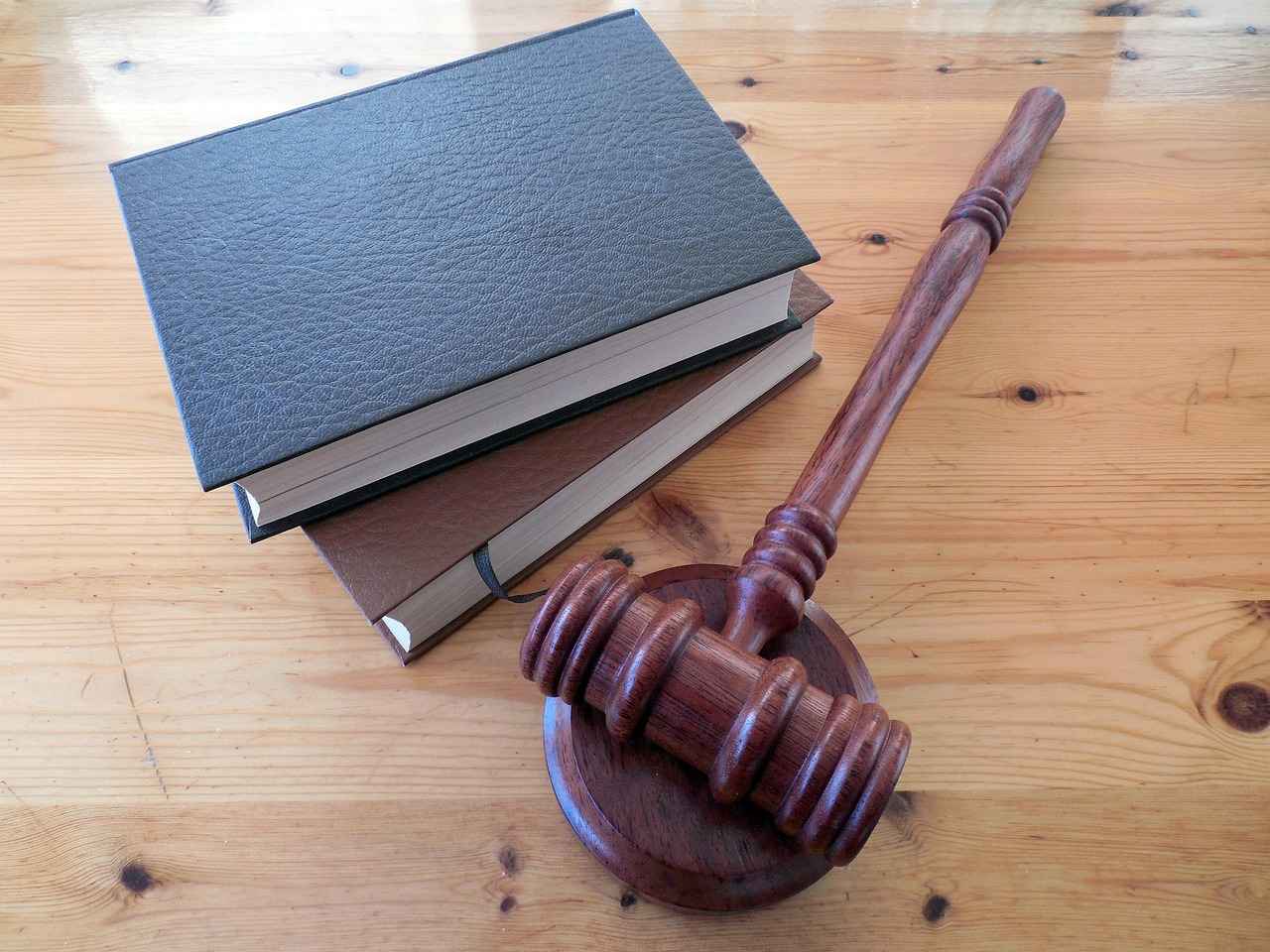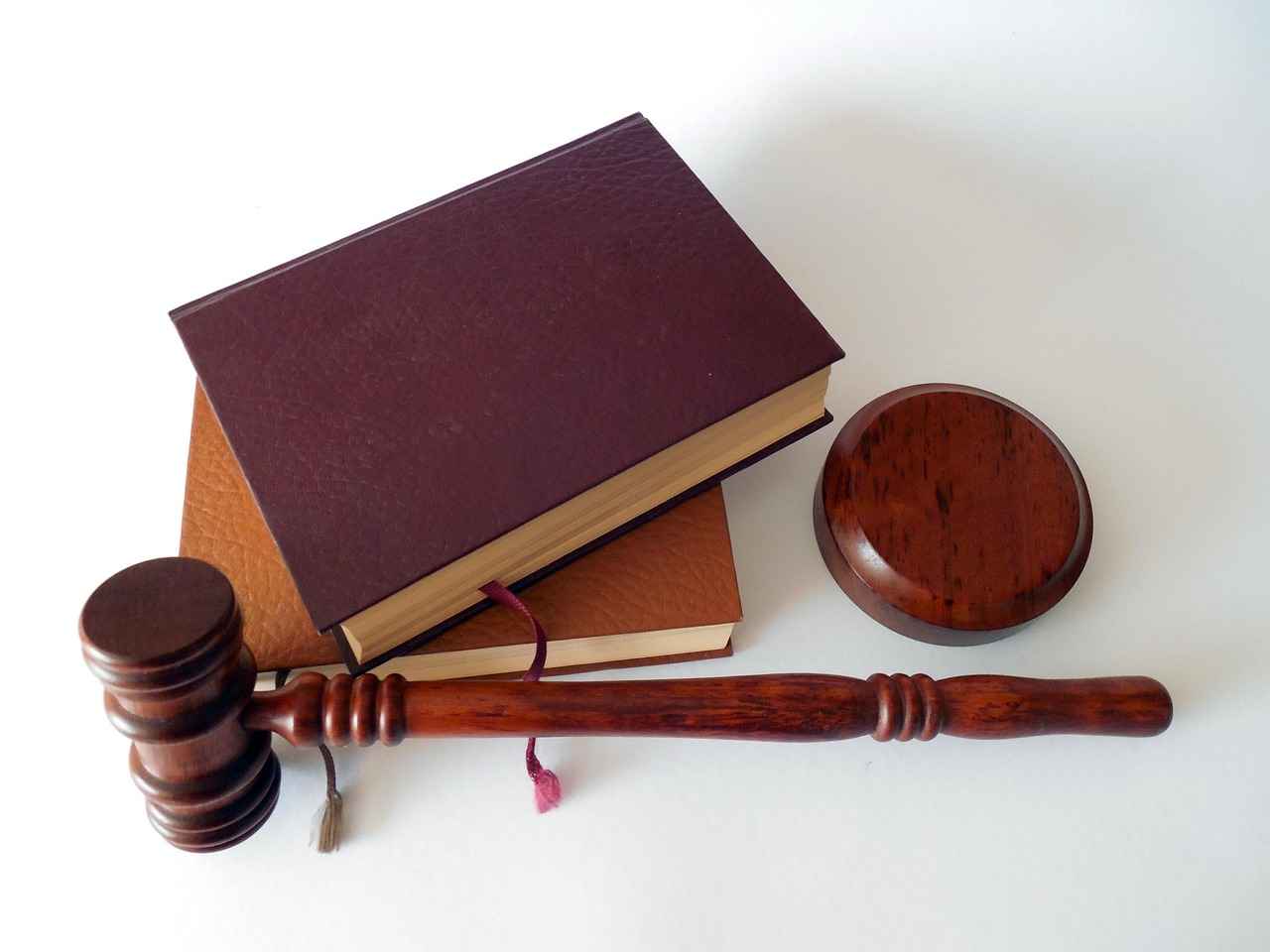This article will explore various types of legal cases in the U.S. and provide expert guidance on finding qualified attorneys in Garland, Texas, for each case type.
Understanding Personal Injury Cases
Personal injury cases are among the most prevalent legal matters in the United States. These cases arise when an individual suffers harm due to another party’s negligence or intentional actions. Common scenarios include car accidents, slip and falls, and workplace injuries. To find a qualified attorney in Garland, Texas, individuals should look for lawyers who specialize in personal injury law and have a proven track record of winning cases. Platforms like Avvo and FindLaw can help in locating experienced attorneys. It’s essential to check their credentials, client reviews, and past settlements or verdicts.
Medical Malpractice Cases Explained
Medical malpractice occurs when healthcare professionals fail to provide the standard of care, resulting in injury or harm to patients. This complex area of law requires attorneys with specific expertise in medical regulations and standards. When seeking legal representation in Garland for a medical malpractice case, look for lawyers who have experience in similar cases and a history of successful outcomes. Additionally, potential clients should inquire about the attorney’s relationships with medical experts, as these are crucial for building a strong case.
Breach of Contract: What You Need to Know
Breach of contract cases arise when one party fails to fulfill their contractual obligations, leading to disputes that can be costly and time-consuming. To navigate these issues effectively, individuals should seek attorneys who specialize in contract law. In Garland, Texas, finding a lawyer with extensive experience in handling breach of contract cases can help save time and resources. Look for attorneys who offer free consultations, which can provide insight into their approach and expertise. Checking their success rate in similar cases is also beneficial.
Navigating Property Disputes
Property disputes often involve disagreements over ownership, boundaries, or land use. These cases can be intricate and require specialized legal knowledge to resolve effectively. When searching for a property dispute attorney in Garland, individuals should prioritize lawyers with experience in real estate law. It’s advisable to ask for references and to review past case outcomes. Utilizing local bar association resources can also lead to reputable attorneys.
Landlord-Tenant Disputes: A Common Legal Issue
Landlord-tenant disputes frequently arise over lease agreements, eviction processes, and property maintenance. Understanding the rights and responsibilities of both parties is essential for effective resolution. When looking for legal representation in Garland, individuals should seek attorneys who are well-versed in landlord-tenant law. Online resources, such as LegalMatch and Justia, can help in finding qualified lawyers who specialize in this area.
Defamation: Understanding Libel and Slander
Defamation cases involve false statements that harm an individual’s reputation. Distinguishing between libel (written) and slander (spoken) is key to these legal battles. When seeking legal counsel in Garland, it is crucial to find attorneys with expertise in media law and defamation cases. Potential clients should review the attorney’s past cases and outcomes, focusing on those who have successfully handled similar claims.
Employment Disputes: Rights and Protections
Employment disputes can encompass a wide range of issues, including wrongful termination, workplace discrimination, and harassment. Knowing your rights is essential in navigating these complex situations. In Garland, individuals should seek attorneys who specialize in employment law and have a history of advocating for employee rights. Checking their credentials and client testimonials can provide insight into their effectiveness.
Product Liability Cases: Holding Manufacturers Accountable
Product liability cases arise when defective products cause harm to consumers. Understanding the legal framework surrounding these cases can empower victims to seek justice. When searching for a product liability attorney in Garland, it is important to find lawyers with experience in handling claims against manufacturers. Look for attorneys who have a solid understanding of consumer protection laws and who can demonstrate past successes in similar cases.
Wrongful Death Claims: Seeking Justice for Loss
Wrongful death claims are filed when negligence or wrongdoing leads to a fatality. These sensitive cases require compassionate legal representation. In Garland, it is vital to find attorneys who specialize in wrongful death cases and have a proven track record of obtaining settlements for grieving families. Potential clients should consider scheduling consultations to gauge the attorney’s empathy and approach to handling such delicate matters.
Class Action Lawsuits: Collective Legal Action
Class action lawsuits allow a group of individuals to collectively sue for damages. Understanding the process and eligibility criteria is crucial for potential plaintiffs. When looking for legal representation in Garland, individuals should seek attorneys who have experience with class action suits. It’s beneficial to ask about their past successes and how they intend to manage the complexities of a class action case.
Assault and Battery: Legal Definitions and Consequences
Assault and battery are criminal offenses that can also lead to civil lawsuits. Knowing the differences and legal implications is vital for victims and defendants alike. When seeking legal counsel in Garland, individuals should look for attorneys who specialize in criminal law and have experience with assault and battery cases. Checking their background in handling similar cases can provide confidence in their ability to navigate the legal system effectively.
Understanding Drug Offenses and Legal Consequences
Drug offenses cover a range of illegal activities involving controlled substances. Navigating the legal landscape requires a knowledgeable attorney. In Garland, individuals should prioritize finding lawyers who specialize in drug law and have a strong understanding of state and federal regulations. It’s important to review their credentials and past case outcomes to ensure they are equipped to handle the complexities of drug-related charges.
Theft and Burglary: Legal Distinctions and Penalties
Theft and burglary are criminal charges with serious legal consequences. Understanding the distinctions can impact defense strategies and outcomes. When seeking legal representation in Garland, individuals should look for attorneys who have experience in criminal defense, particularly in theft and burglary cases. Asking for referrals and checking reviews can help in identifying trustworthy legal counsel.

Understanding Personal Injury Cases
Personal injury cases are a prevalent aspect of the legal landscape in the United States, encompassing a wide range of incidents where individuals suffer harm due to the negligence or intentional actions of another party. These cases can arise from various situations, including automobile accidents, slip and fall incidents, medical malpractice, and defective products. The fundamental principle underlying personal injury law is that individuals have the right to seek compensation for damages incurred as a result of someone else’s wrongful conduct.
To successfully navigate a personal injury claim, it is crucial to establish that the other party was negligent. This involves demonstrating that the responsible party owed a duty of care to the injured individual, breached that duty, and caused the injury through their actions or inactions. For example, in a car accident case, a driver who runs a red light may be found liable for the injuries sustained by another motorist.
In personal injury cases, victims may seek compensation for various damages, including:
- Medical Expenses: All costs related to medical treatment, rehabilitation, and ongoing care.
- Lost Wages: Compensation for income lost due to the inability to work after the injury.
- Pain and Suffering: Non-economic damages that account for physical pain and emotional distress.
- Property Damage: Costs associated with repairing or replacing damaged property.
Finding a qualified personal injury attorney is essential for effectively pursuing a claim. Here are some expert tips for selecting the right legal representation:
- Experience: Look for attorneys who specialize in personal injury law and have a proven track record of successful cases.
- Reputation: Research online reviews and testimonials from previous clients to gauge the attorney’s reliability and effectiveness.
- Consultation: Many attorneys offer free initial consultations, allowing you to assess their approach and expertise without financial commitment.
- Fee Structure: Understand the attorney’s fee arrangement, typically on a contingency basis, where they only get paid if you win your case.
Additionally, be cautious of red flags when hiring a personal injury attorney. Avoid attorneys who make unrealistic promises or pressure you into signing contracts without thoroughly explaining the terms. Trustworthy lawyers will provide clear communication and set realistic expectations regarding the potential outcomes of your case.
In summary, personal injury cases are complex and require a comprehensive understanding of the legal system. By seeking experienced legal counsel and being mindful of the selection process, individuals can better navigate the challenges associated with personal injury claims and work towards obtaining the compensation they deserve.

Medical Malpractice Cases Explained
Medical malpractice is a critical area of law that addresses the failures of healthcare professionals to provide the standard of care expected in their field. When these professionals—be they doctors, nurses, or other medical staff—fail to meet these standards, it can lead to significant harm or injury to patients. Understanding the nuances of medical malpractice is essential for potential plaintiffs who may be considering legal action.
In the realm of medical malpractice, several key elements must be established to prove a case:
- Duty of Care: The healthcare provider must have had a duty to care for the patient. This typically exists when a professional-patient relationship is established.
- Breaching the Standard of Care: It must be shown that the healthcare provider failed to act in accordance with the accepted medical standards. This often requires expert testimony.
- Injury or Harm: The patient must have suffered an injury or harm as a direct result of the breach of duty.
- Causation: There must be a clear connection between the healthcare provider’s actions (or inactions) and the injury sustained by the patient.
Medical malpractice cases can arise from various situations, including misdiagnosis, surgical errors, medication mistakes, and birth injuries. Each of these scenarios can lead to devastating consequences for patients and their families.
Finding a qualified attorney to handle a medical malpractice case is crucial. Here are some expert tips on how to find the right legal representation:
- Specialization: Look for attorneys who specialize in medical malpractice law. They will have the necessary experience and knowledge to navigate these complex cases.
- Track Record: Research the attorney’s success rate in handling similar cases. A proven record can provide confidence in their capabilities.
- Client Reviews: Check online reviews and testimonials from previous clients. Positive feedback can indicate a reliable attorney.
- Consultation: Many attorneys offer free consultations. Use this opportunity to gauge their expertise and approach to your case.
- Fees: Understand the attorney’s fee structure. Many medical malpractice attorneys work on a contingency fee basis, meaning they only get paid if you win your case.
Additionally, it’s important to be aware of red flags when hiring a medical malpractice attorney. Avoid attorneys who guarantee a specific outcome, as no attorney can predict the results of a legal case. Also, be cautious of those who are unwilling to discuss their fees upfront or who lack transparency in their communication.
In conclusion, navigating the complexities of medical malpractice requires not only a strong understanding of the legal landscape but also the right legal representation. By following these guidelines, individuals can increase their chances of finding a qualified attorney who can effectively advocate for their rights and ensure they receive the justice they deserve.

Breach of Contract: What You Need to Know
Breach of contract cases arise when one party fails to fulfill their contractual obligations. Such instances can lead to significant legal disputes, which can be both time-consuming and costly. Understanding the fundamentals of breach of contract can empower individuals and businesses to navigate these disputes effectively and protect their interests.
In a typical breach of contract scenario, one party does not perform their duties as outlined in the agreement. This can happen in various ways, such as failing to deliver goods, not making payments, or not adhering to the terms specified in the contract. The aggrieved party can seek legal recourse through the courts, which may involve filing a lawsuit for damages or specific performance.
To successfully navigate breach of contract cases, it is essential to understand the key elements involved:
- Existence of a Valid Contract: There must be a legally binding agreement between the parties, which includes an offer, acceptance, and consideration.
- Proof of Breach: The aggrieved party must demonstrate that the other party failed to meet their contractual obligations.
- Damages: The plaintiff must show that they incurred damages as a result of the breach, which can include financial losses or other impacts.
When dealing with a breach of contract, it is advisable to take the following steps:
- Review the Contract: Carefully examine the terms of the agreement to understand the obligations of each party.
- Document Everything: Keep detailed records of communications and actions taken related to the contract. This documentation can be crucial in legal proceedings.
- Attempt Resolution: Before escalating the matter to legal action, consider negotiating with the other party to resolve the issue amicably.
- Consult an Attorney: Engaging a qualified attorney who specializes in contract law can provide valuable insights and representation.
When seeking legal representation in breach of contract cases, particularly in metropolitan areas like New York City or Los Angeles, consider the following:
- Research Credentials: Look for attorneys with experience in contract law, and check their qualifications and track records.
- Read Reviews: Online reviews and testimonials can provide insights into the attorney’s reputation and client satisfaction.
- Initial Consultations: Many attorneys offer free consultations. Use this opportunity to gauge their expertise and approach.
- Beware of Red Flags: Be cautious of attorneys who promise guaranteed outcomes or those who lack transparency regarding fees and processes.
In summary, understanding the intricacies of breach of contract cases is vital for individuals and businesses alike. By being informed and proactive, you can effectively protect your rights and interests in these legal disputes. Engaging the right legal professional can make all the difference in achieving a favorable outcome.

Navigating Property Disputes
Property disputes are a common legal issue that can arise from various situations, including disagreements over ownership, boundaries, and land use. These disputes can be complex and often require specialized legal knowledge to resolve effectively. Understanding the nuances of property law is crucial for anyone involved in such disputes, as even minor misunderstandings can lead to significant legal challenges.
One of the primary causes of property disputes is the question of ownership. This can occur when two or more parties claim rights to the same property, leading to conflicts that may require legal intervention. In such cases, it is essential to gather all relevant documentation, such as deeds, titles, and surveys, to establish a clear chain of ownership. Engaging a qualified attorney who specializes in real estate law can help clarify these issues and provide guidance on the best course of action.
Another common source of property disputes is boundary disagreements. These disputes often arise when property lines are unclear or have been improperly marked. To resolve boundary issues, property owners may need to hire a professional surveyor to accurately determine the property lines. This information can then be used in conjunction with legal representation to negotiate a resolution with neighboring property owners. It is important to approach these situations with a willingness to communicate and compromise, as this can often lead to a more amicable resolution.
Land use disputes can also be a significant source of legal contention. These disputes typically involve disagreements over how a property can be used, often influenced by zoning laws and regulations. For instance, a property owner may wish to develop land for commercial use, while neighbors may oppose the development due to concerns about traffic or environmental impact. In such cases, understanding local zoning laws and regulations is crucial. Consulting with an attorney who has experience in land use issues can provide valuable insights and help navigate the legal complexities involved.
When navigating property disputes, it is essential to seek legal counsel early in the process. A knowledgeable attorney can help assess the situation, provide guidance on potential legal remedies, and represent your interests in negotiations or court proceedings. Additionally, it is crucial to choose an attorney with experience in property law and a proven track record of successfully handling similar cases.
In summary, property disputes can arise from various issues, including ownership claims, boundary disagreements, and land use conflicts. Engaging a qualified attorney who specializes in property law can help individuals navigate these complex legal waters effectively. By understanding the underlying causes of these disputes and seeking professional guidance, property owners can work towards resolving their issues in a timely and efficient manner.

Landlord-Tenant Disputes: A Common Legal Issue
Landlord-tenant disputes are a frequent source of conflict in rental agreements, often leading to legal action. These disputes can arise from a variety of issues, including misunderstandings about lease terms, eviction processes, and property maintenance responsibilities. It is crucial for both landlords and tenants to understand their rights and responsibilities to avoid legal complications.
One of the primary areas of contention is the lease agreement itself. A lease is a legally binding contract that outlines the terms of the rental arrangement. Tenants may find themselves at odds with landlords over issues such as security deposits, late payment penalties, and maintenance obligations. For instance, if a landlord fails to address urgent repair needs, tenants may have grounds to withhold rent or pursue legal action for breach of contract. Conversely, landlords may seek eviction if tenants violate lease terms, such as unauthorized subletting or property damage.
Another significant aspect of landlord-tenant disputes is the eviction process. Evictions can be a complex and emotionally charged situation. Landlords must follow specific legal procedures to evict a tenant, which typically involves providing written notice and filing for eviction in court if the tenant does not comply. Tenants, on the other hand, may contest evictions by asserting their rights, such as arguing that the eviction is retaliatory or that proper notice was not given. Understanding the legal framework surrounding evictions can help both parties navigate this challenging process.
Property maintenance is another common source of conflict. Landlords are generally responsible for maintaining habitable living conditions, which includes addressing plumbing issues, heating failures, and pest infestations. Tenants have the right to request repairs, but they must also ensure they are not causing damage through negligence. If disputes arise over maintenance, both parties should document communications and actions taken to resolve the issue.
To effectively manage landlord-tenant disputes, it is advisable for both parties to keep detailed records of all communications and transactions. This documentation can be invaluable in legal proceedings and can help clarify misunderstandings. Additionally, both landlords and tenants should consider seeking legal advice when entering into lease agreements or when disputes arise. A qualified attorney can provide guidance on the rights and obligations of each party, helping to prevent conflicts from escalating into legal battles.
In summary, landlord-tenant disputes are common but can be mitigated through a clear understanding of lease agreements, the eviction process, and property maintenance responsibilities. By being informed and proactive, both landlords and tenants can foster a more harmonious rental relationship.

Defamation: Understanding Libel and Slander
Defamation is a critical legal concept that involves false statements made about an individual or entity that can cause significant harm to their reputation. In the realm of defamation law, it is essential to differentiate between libel and slander, as each type has its own legal implications and requirements for a successful case.
Libel refers to defamatory statements that are made in a written or published format. This can include articles, social media posts, books, or any other form of written communication. Because libelous statements are permanent, they are often seen as more damaging than slanderous statements. Victims of libel can claim damages for the harm caused to their reputation, emotional distress, and even financial losses resulting from the false statements.
On the other hand, slander involves spoken defamatory statements. These statements are typically made in a transient form, such as during conversations or speeches. While slander can also lead to significant harm, proving damages can be more challenging. In many cases, the victim must demonstrate that the slanderous statement resulted in actual harm, such as loss of employment or business opportunities.
In both libel and slander cases, the burden of proof lies with the plaintiff, who must establish that the statement in question was false, damaging, and made with a certain level of fault. This fault can vary depending on whether the plaintiff is a private individual or a public figure. Public figures must prove actual malice, meaning the statement was made with knowledge of its falsity or with reckless disregard for the truth.
When pursuing a defamation case, it is crucial to gather evidence that supports your claim. This may include:
- Documentation of the defamatory statements
- Witnesses who can corroborate your account
- Proof of damages incurred
Finding a qualified attorney who specializes in defamation law is essential for navigating these complex cases. Here are some tips to consider when searching for legal representation:
- Look for lawyers with a strong background in media law or defamation cases.
- Consider their track record in winning similar cases.
- Check for any professional associations they belong to, such as the American Bar Association.
- Read client reviews and testimonials to gauge their reputation.
Additionally, be cautious of red flags when selecting an attorney. Avoid lawyers who make unrealistic promises or guarantees about the outcome of your case. Also, steer clear of those who do not take the time to explain the legal process or who seem more interested in fees than in your case.
In conclusion, understanding the nuances of defamation law, including the differences between libel and slander, is vital for anyone considering legal action. With the right legal guidance, individuals can effectively navigate these challenging waters and seek the justice they deserve.

Employment Disputes: Rights and Protections
Employment disputes can arise in various forms and can significantly impact an individual’s career and well-being. These disputes often encompass issues such as wrongful termination, workplace discrimination, harassment, and retaliation. Understanding your rights and the protections afforded to you under the law is essential for navigating these complex situations effectively.
In the United States, employment laws are designed to protect employees from unfair treatment in the workplace. The Equal Employment Opportunity Commission (EEOC) enforces federal laws prohibiting employment discrimination. This includes discrimination based on race, color, religion, sex, national origin, age, disability, and genetic information. If you believe you have been a victim of discrimination, it is crucial to document your experiences and consult an attorney who specializes in employment law.
Another common area of employment disputes is wrongful termination. This occurs when an employee is fired for illegal reasons, such as retaliation for reporting workplace violations or discrimination. If you suspect that your termination was wrongful, gathering evidence such as emails, performance reviews, and witness statements can be vital in building your case. It is advisable to seek legal counsel promptly, as there are strict timelines for filing claims.
Workplace harassment is another critical issue that employees may face. This can include unwanted advances, offensive remarks, or hostile work environments. Employers are required to take appropriate steps to prevent and address harassment in the workplace. If you experience harassment, it is essential to report it to your employer and document all incidents. An experienced attorney can guide you on the best course of action, including filing a complaint with the EEOC or pursuing legal action.
Retaliation is also a significant concern in employment disputes. Employees who report illegal activities or participate in investigations are protected from retaliation. If you face negative consequences for exercising your rights, such as demotion or harassment, you may have a case against your employer. Legal representation is crucial in these situations to ensure your rights are protected.
When looking for a qualified attorney to handle employment disputes, consider the following tips:
- Specialization: Look for attorneys who specialize in employment law, as they will have the specific knowledge and experience needed to navigate your case.
- Credentials: Check their credentials, including education, bar association membership, and any relevant certifications.
- Experience: Inquire about their experience with cases similar to yours and their success rate in handling employment disputes.
- Client Reviews: Read reviews and testimonials from previous clients to gauge their reputation and effectiveness.
- Initial Consultation: Many attorneys offer free consultations. Use this opportunity to assess their approach and determine if they are a good fit for your needs.
Be wary of red flags such as attorneys who guarantee outcomes, those who lack transparency about fees, or those who pressure you to settle quickly. A reputable attorney will provide a realistic assessment of your case and discuss potential outcomes without making unrealistic promises.
In conclusion, understanding your rights and protections in employment disputes is crucial for navigating these challenging situations. With the right legal representation, you can advocate for yourself effectively and seek justice for any wrongs you may have experienced in the workplace.

Product Liability Cases: Holding Manufacturers Accountable
Product liability cases are a crucial aspect of consumer protection law, arising when a defective product causes harm or injury to a consumer. These cases can involve various types of defects, including design defects, manufacturing defects, and inadequate warnings or instructions. Understanding the legal framework surrounding product liability is essential for victims seeking justice and compensation.
In the United States, product liability laws vary by state, but generally, they hold manufacturers, distributors, and retailers accountable for the safety of their products. If a product is found to be defective and causes injury, the injured party may be entitled to compensation for medical expenses, lost wages, pain and suffering, and other damages.
Types of Product Defects
- Design Defects: These occur when the product is inherently unsafe due to its design, even if it is manufactured correctly.
- Manufacturing Defects: These happen during the production process, resulting in a product that deviates from its intended design and is unsafe.
- Marketing Defects: These involve inadequate warnings or instructions that fail to inform consumers of potential risks associated with the product.
Legal Framework and Theories of Liability
In product liability cases, plaintiffs can pursue claims under several theories, including:
- Negligence: The plaintiff must prove that the manufacturer failed to exercise reasonable care in the design or production of the product.
- Strict Liability: This theory allows plaintiffs to recover damages without proving negligence, simply by showing that the product was defective and caused harm.
- Breach of Warranty: Claims can arise from the violation of express or implied warranties regarding the product’s safety and performance.
Finding the Right Attorney for Product Liability Cases
When seeking legal representation for a product liability case, it is crucial to find an attorney with experience in this specialized area of law. Here are some tips for finding qualified legal counsel:
- Look for Experience: Seek attorneys who have a proven track record in handling product liability cases. Experience in similar cases can significantly impact the outcome.
- Check Credentials: Verify the attorney’s education, bar association membership, and any certifications in personal injury or product liability law.
- Read Reviews: Online reviews and testimonials can provide insight into an attorney’s reputation and success rate.
- Consult Multiple Attorneys: Schedule consultations with several lawyers to discuss your case and assess their approach and compatibility with your needs.
Red Flags to Avoid
While searching for a product liability attorney, be cautious of the following red flags:
- Lack of Experience: Avoid attorneys who do not have a background in personal injury or product liability cases.
- High Pressure Tactics: Be wary of lawyers who pressure you into signing a contract or making quick decisions.
- Unclear Fee Structures: Ensure you understand the attorney’s fee structure and avoid those who are not transparent about costs.
In conclusion, product liability cases are complex and require a knowledgeable attorney to navigate the legal landscape effectively. By understanding the types of defects, legal theories, and how to find the right legal representation, victims can hold manufacturers accountable and seek the justice they deserve.

Wrongful Death Claims: Seeking Justice for Loss
Wrongful death claims represent a profound intersection of legal intricacies and human tragedy. These claims arise when an individual’s death is caused by the negligence or wrongdoing of another party, leading to devastating consequences for the deceased’s family and loved ones. In the United States, the legal framework surrounding wrongful death is designed to provide a means for survivors to seek justice and compensation for their loss. Navigating these sensitive cases requires not only legal expertise but also a compassionate approach to the grieving process.
When pursuing a wrongful death claim, it is essential to understand the various elements involved. The plaintiff, typically a family member or dependent of the deceased, must prove that the defendant’s actions directly caused the death. This often involves demonstrating that the defendant had a duty of care, breached that duty, and that this breach resulted in the fatal incident. Common scenarios leading to wrongful death claims include car accidents, medical malpractice, workplace accidents, and product liability cases.
Finding a qualified attorney to handle a wrongful death claim is crucial. Here are some expert-level tips to help you identify the right legal representation:
- Look for specialization: Seek attorneys who specialize in wrongful death and personal injury cases. Their experience in handling similar cases will provide valuable insights into the complexities involved.
- Check credentials: Verify the attorney’s qualifications, including their education, bar association membership, and any relevant certifications. A strong track record in similar cases is a good indicator of their capability.
- Read reviews and testimonials: Online platforms such as Avvo and Martindale-Hubbell can provide client reviews and ratings. Look for feedback that highlights the attorney’s communication skills, empathy, and success rate.
- Schedule consultations: Most attorneys offer free initial consultations. Use this opportunity to gauge their understanding of your case and their approach to legal representation.
- Assess communication style: Choose an attorney who communicates clearly and compassionately. You want someone who will keep you informed and guide you through the legal process with sensitivity.
In wrongful death cases, time is often of the essence. Statutes of limitations vary by state, meaning that there is a limited window to file a claim. Therefore, it is crucial to act promptly and consult with a legal professional as soon as possible. They can help gather necessary evidence, including medical records, accident reports, and witness statements, which are essential for building a strong case.
Moreover, understanding the potential damages that can be claimed in a wrongful death suit is vital. Compensation may cover medical expenses incurred prior to death, funeral costs, lost wages, and non-economic damages such as loss of companionship and emotional suffering. A knowledgeable attorney will be able to accurately assess the value of your claim and advocate for fair compensation on your behalf.
In summary, wrongful death claims are complex and emotionally charged. Finding the right attorney can make a significant difference in the outcome of your case. By following the steps outlined above, you can ensure that you are well-equipped to navigate this challenging legal landscape while seeking justice for your loss.

Class Action Lawsuits: Collective Legal Action
Class action lawsuits represent a powerful tool for individuals seeking justice against a common defendant. These lawsuits allow a group of people, often facing similar grievances, to come together and file a single lawsuit. This collective legal action can be particularly effective in cases where individual claims may not warrant the time or expense of a separate lawsuit. Understanding the nuances of class action lawsuits is essential for potential plaintiffs who wish to pursue this route.
To initiate a class action lawsuit, several eligibility criteria must be met. Firstly, there must be a large group of individuals who share the same legal issue, which could range from consumer fraud to employment discrimination. The legal concept of commonality is vital; the claims of the group members must arise from the same circumstances or events. Additionally, the claims must be typical of the group, meaning that the lead plaintiff’s situation should reflect that of the other class members.
Another critical aspect is the requirement for the claims to be manageable as a single lawsuit. This means that the court must be able to handle the case without overwhelming complexity. If the claims vary too widely among group members, it may not qualify as a class action. Furthermore, the representative plaintiff must adequately protect the interests of the entire class, demonstrating that they have the resources and commitment to pursue the case effectively.
Once eligibility is established, the process typically involves filing a motion for class certification with the court. This motion outlines the reasons why the case should be treated as a class action and includes evidence supporting the claims of the group. If the court approves the certification, the lawsuit proceeds, and the class members are notified about their rights, including the option to opt-out of the class if they prefer to pursue individual claims.
For potential plaintiffs considering a class action lawsuit, it is crucial to seek legal representation from attorneys who specialize in this area of law. Experienced lawyers can provide invaluable guidance through the complex process, ensuring that the interests of the class are well-represented. When searching for a qualified attorney, consider the following strategies:
- Research Online Platforms: Websites like Avvo, Martindale-Hubbell, and FindLaw can help you find attorneys with expertise in class action lawsuits.
- Check Credentials: Look for lawyers who have experience in class actions, demonstrated by previous cases they have handled successfully.
- Read Reviews: Client testimonials can provide insight into an attorney’s effectiveness and client service.
- Consult Local Bar Associations: Many local bar associations offer referral services that can connect you with reputable attorneys in your area.
Additionally, be aware of red flags when selecting a lawyer. High-pressure sales tactics, lack of transparency regarding fees, or reluctance to provide references can be warning signs. A trustworthy attorney will be open about their experience, fees, and the potential outcomes of your case.
In summary, class action lawsuits are a powerful means of collective legal action, allowing individuals to band together for justice. Understanding the eligibility criteria and the process involved is essential for potential plaintiffs. By conducting thorough research and seeking qualified legal representation, individuals can navigate the complexities of class action lawsuits more effectively.

Assault and Battery: Legal Definitions and Consequences
Assault and battery are two terms often used interchangeably, but they represent distinct legal concepts. Understanding the nuances between these offenses is crucial for both victims seeking justice and defendants aiming to protect their rights. In many jurisdictions, assault is defined as an act that creates a reasonable apprehension of imminent harmful or offensive contact, while battery involves the actual physical contact that results in harm or offense. Both offenses can lead to serious criminal charges and potential civil lawsuits, making it essential to grasp their legal implications.
Victims of assault and battery may pursue criminal charges against the perpetrator, which can result in fines, probation, or even imprisonment. However, they also have the option to file a civil lawsuit seeking compensation for damages such as medical expenses, lost wages, and emotional distress. This dual pathway for justice highlights the importance of understanding the legal landscape surrounding these offenses.
In many cases, the severity of the charges can vary based on factors such as the extent of the injury, the use of a weapon, and the intent behind the act. For instance, aggravated assault involves circumstances that increase the severity of the crime, such as the use of a deadly weapon or the intent to cause serious bodily harm. Understanding these distinctions can greatly impact the legal strategies employed by both plaintiffs and defendants.
When navigating a case involving assault and battery, it is crucial to seek legal representation from an attorney experienced in criminal law and personal injury. Here are some practical tips for finding the right legal professional:
- Research Credentials: Look for attorneys who specialize in criminal defense or personal injury law. Check their educational background, years of experience, and any relevant certifications.
- Read Reviews: Online reviews and testimonials can provide insight into an attorney’s reputation and success rate. Websites like Avvo or Yelp can be helpful resources.
- Consult Multiple Attorneys: Schedule consultations with several lawyers to discuss your case. This will help you gauge their understanding of the law and their communication style.
- Avoid Red Flags: Be cautious of attorneys who make unrealistic promises or demand large upfront fees without a clear explanation of their services.
In summary, understanding the legal definitions and consequences of assault and battery is vital for anyone involved in such cases. By seeking qualified legal representation and being informed about your rights, you can navigate the complexities of the legal system more effectively.

Understanding Drug Offenses and Legal Consequences
Drug offenses encompass a wide range of illegal activities involving controlled substances. These offenses can vary significantly in severity, from simple possession of small amounts of drugs to serious trafficking charges. The legal landscape surrounding drug offenses is complex, and navigating it effectively requires the guidance of a knowledgeable attorney.
In the United States, drug offenses are categorized into various classes, each with its own set of legal implications. For example, possession of a controlled substance is often considered a misdemeanor, while distribution or trafficking can lead to felony charges. The consequences of a drug conviction can include hefty fines, imprisonment, and a permanent criminal record, which can significantly affect one’s future opportunities.
To effectively address drug-related charges, individuals should seek legal representation with specific experience in drug law. Here are some essential tips for finding the right attorney:
- Look for Specialization: Ensure the attorney specializes in drug offenses and has a successful track record in handling similar cases.
- Check Credentials: Verify their educational background, bar association membership, and any additional certifications in criminal law.
- Read Reviews: Look for client testimonials and reviews online to gauge the attorney’s reputation and effectiveness.
- Schedule Consultations: Many attorneys offer free consultations. Use this opportunity to discuss your case and assess their understanding and approach.
- Ask About Strategies: Inquire about their strategies for defending against drug charges and how they plan to tackle your specific situation.
Additionally, it’s crucial to be aware of red flags when hiring a legal professional:
- Overpromising Results: Be wary of attorneys who guarantee specific outcomes, as the legal process can be unpredictable.
- Lack of Communication: An attorney should be responsive and willing to keep you informed about your case’s progress.
- High Pressure Tactics: Avoid attorneys who push you to make quick decisions without giving you adequate time to consider your options.
In major metropolitan areas such as New York City, Los Angeles, and Chicago, the competition among attorneys can be fierce. However, this also means there are many qualified professionals available. Utilize online legal directories, state bar association resources, and community referrals to find reputable attorneys in your area.
Ultimately, understanding the nuances of drug offenses and their legal consequences is vital. With the right attorney by your side, you can navigate the complexities of the legal system and work towards the best possible outcome for your case.

Theft and Burglary: Legal Distinctions and Penalties
Theft and burglary are two distinct criminal offenses that carry serious legal repercussions. Understanding the differences between these charges is crucial for both defendants and victims, as it can significantly influence defense strategies and potential outcomes in court.
Theft, often referred to as larceny, involves the unlawful taking of someone else’s property with the intent to permanently deprive the owner of it. This crime can occur in various forms, including shoplifting, pickpocketing, and auto theft. The penalties for theft can vary based on the value of the stolen property, with minor thefts often classified as misdemeanors and more significant thefts categorized as felonies. For instance, stealing a car or high-value items can lead to severe penalties, including substantial fines and imprisonment.
On the other hand, burglary involves entering a building or structure without permission with the intent to commit a crime inside, which is not limited to theft. This could include breaking and entering with the intention of committing assault, vandalism, or any other crime. Burglary charges can also escalate based on various factors, such as whether the act was committed during the day or night, whether the perpetrator was armed, or if there were individuals present at the time of the crime. As a result, burglary is generally considered a more serious offense than theft and can lead to harsher penalties, including longer prison sentences.
It’s essential for individuals facing theft or burglary charges to seek legal representation. A knowledgeable attorney can assess the specifics of the case, evaluate evidence, and develop an effective defense strategy. Factors such as prior criminal history, the circumstances surrounding the alleged crime, and the defendant’s intent can all play a significant role in the outcome of the case.
Moreover, understanding the legal distinctions between theft and burglary can also aid victims in pursuing justice. Victims may be entitled to restitution, which is compensation for their losses, and an attorney can help navigate the complexities of the legal system to ensure their rights are protected.
In summary, theft and burglary are serious offenses with distinct legal definitions and consequences. Whether you are accused of committing these crimes or are a victim seeking justice, having a clear understanding of the legal landscape and working with a qualified attorney is essential for navigating these challenging situations effectively.
Frequently Asked Questions
- What types of cases do personal injury lawyers handle?
Personal injury lawyers typically handle cases involving accidents, medical malpractice, and workplace injuries. If you’ve been harmed due to someone else’s negligence, they can help you seek compensation.
- How can I determine if I have a medical malpractice case?
If you believe a healthcare professional failed to provide adequate care, resulting in injury, you may have a case. Consulting with a specialized attorney can help clarify your situation.
- What should I do if I am involved in a breach of contract dispute?
First, review the contract to understand your rights and obligations. Then, consider discussing the issue with a lawyer who can guide you through the negotiation or litigation process.
- How can I resolve a landlord-tenant dispute?
Start by reviewing your lease agreement and understanding your rights. If the issue persists, seeking legal advice can help you navigate the situation effectively.
- What is the difference between libel and slander?
Libel refers to false statements made in writing, while slander involves spoken statements. Both can harm reputations, but the legal approaches may differ.
- What should I do if I face wrongful termination?
If you believe you’ve been wrongfully terminated, document the circumstances and consult an employment attorney to explore your options for recourse.
- What is a class action lawsuit?
A class action lawsuit allows a group of individuals with similar claims to collectively sue a defendant. It can be an effective way to seek justice, especially in cases involving large corporations.














